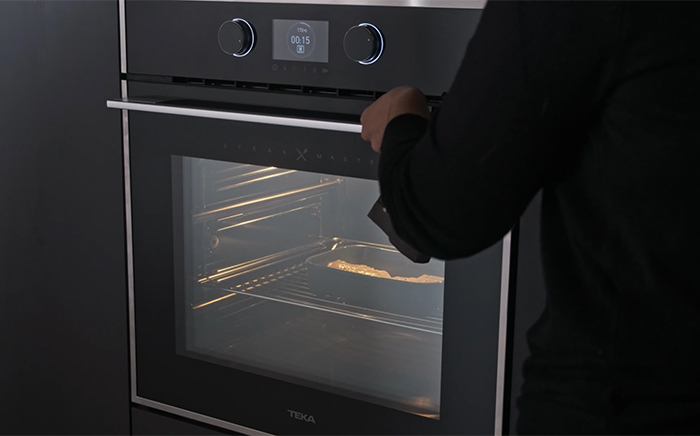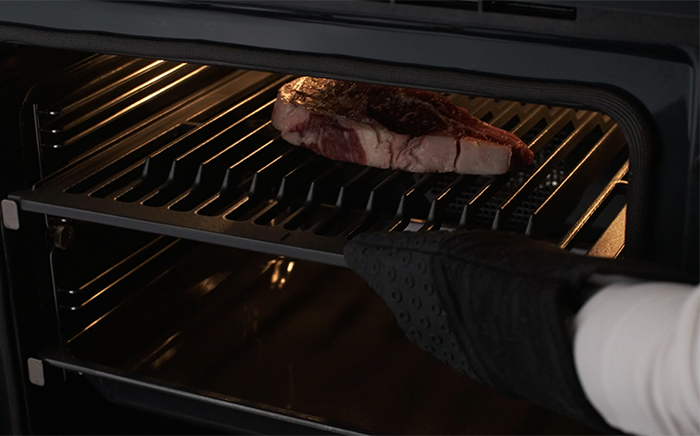
We can use the oven at home many times for many dishes, whether it is summer or winter. It is a helping hand if you need to control your diet because there are many recipes to cook with less fat and oil but keep all the flavours and nutrients. Sometimes, we don’t know if we should use it because we are not sure how much electricity an oven consumes, even though it is not a home appliance that needs more energy. Since energy efficiency is a must at home, we are going through a few tips to save energy while using your oven and get the most out of it.
Tips to use the oven and save energy
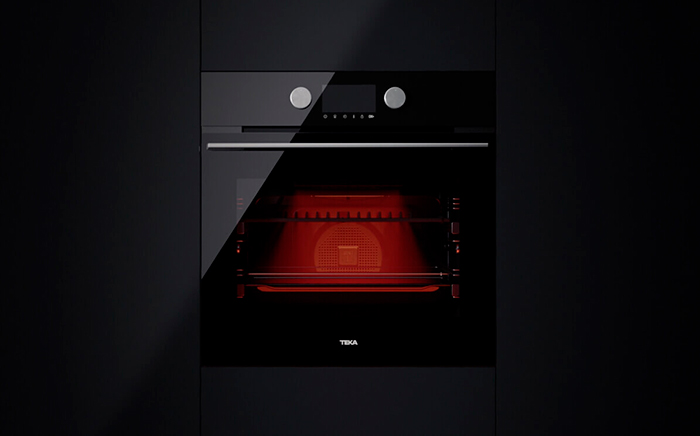
Take note of these energy-saving tips for using the oven, and feel free to use it whenever you want. The aim here is you use it without wondering if you will lose your 10 years of savings paying an electricity bill.
Be sure the oven is working well
As you can guess, an oven is made of many parts to bring the best to your kitchen. Every single part must be in optimal condition for the best performance and efficiency of the oven. We are not telling you to dismantle the oven looking for what is wrong, but it is more than OK to watch your appliance and observe if it is working fine. Check if the door of the oven closes properly, if there is any obstruction, or if it is not completely closed. Check if the thermostat and the fan are doing their jobs. If you see something that seems to be wrong, especially in a new oven, check the instructions and the warranty before it gets worse.
Use the different rack levels
Ovens, from compacts to the big ones, have several rack positions on their walls to place the oven trays. The latest models use telescopic rails with the trays, and you can find domestic ovens with even five rack levels. In almost any kind of oven, you can cook several dishes at the same time.
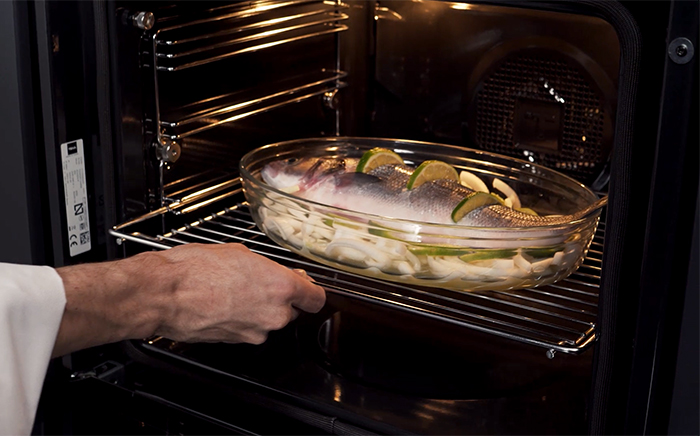
This means that, if you want to cook chicken and want to make a side dish like roasted vegetables, you can divide the dishes between the top and the bottom of the oven. This is a way to use the whole capacity of the oven while saving energy. Don’t overload it for better performance, though.
Small portions or thin slices
As it happens when cooking veggies if we want to cook something faster, it is a good idea to cut what we need to cook into small portions. The smaller the pieces of food are, the faster they will cook and be ready to serve. If you want to cook a gilthead, for instance, ask your fishmonger to fillet the piece. This will help you save some electricity too.
Do not open the oven door all the time
Yes, we know it is tempting to open it to see if your wonderful dish is ready or not but trust the time and temperature settings of the oven and recipes. This is one of the most common mistakes, and by just watching through the glass door but not opening it, you can save energy with the oven. When you do so, you are losing part of the heat, and the appliance will need more power to reach the temperature again and again. And if you are baking a sponge cake, both of you will suffer the consequences.
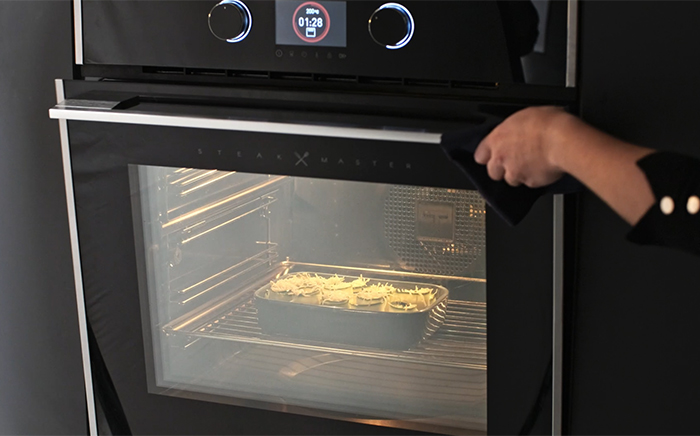
Your friend, the residual heat
As you probably know, when the oven reaches high temperatures, the heat remains for a few minutes inside when you turn it off. In fact, most of the recipes taste better if you let them rest for a few minutes before serving. Take advantage of the residual heat and, when the recipe is almost over, like 10 minutes before finishing the cooking process, turn it off to use it. Perhaps you need to keep your dishes warm for a while until everybody’s at the table. Then, use the residual heat again as a sort of plate warmer or even to refresh a loaf of bread and make it crunchy.
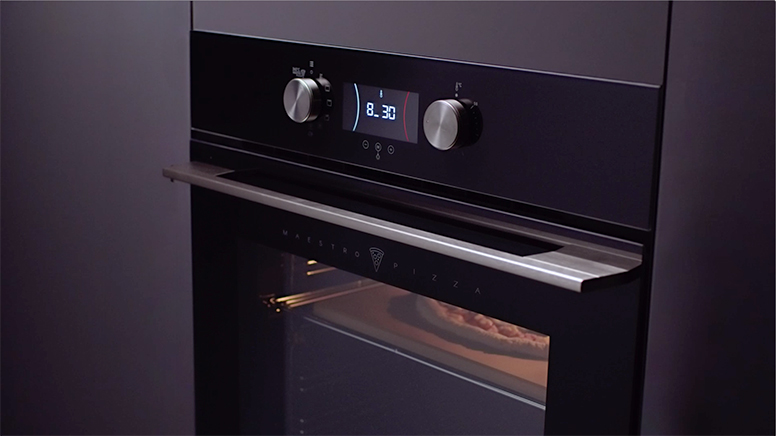
Use clay or ceramics
In the old days, our grandmas used ceramics and clay to make those mouthwatering dishes like—insert here your favourite baked dish of all time. Don’t keep them in a box in the basement; choose to cook with these materials. Both ceramics and clay reach the optimal temperature faster, compared with other materials, and that reduces the cooking time. Glass is pretty welcome too.
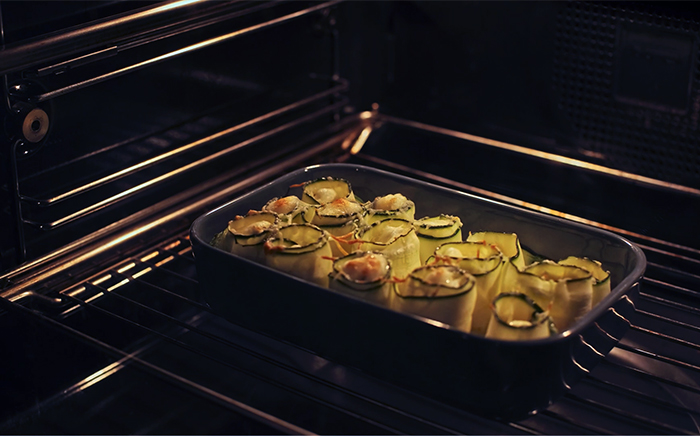
Invest in technology
It’s crystal clear. The energy consumption of a new oven is not the same as a 30-year-old oven. Energy efficiency in the last generation of ovens, according to the new energy labels, is a reality. If you think your oven is asking for retirement, do not think twice. The electricity savings with a new home appliance are obvious on your bill.
The oven is an excellent kitchen assistant, and even more so if you do a couple of things to get the most out of it. Don’t let the electricity consumption of your oven be an obstacle to using it whenever you want to. You can save some energy while using it, but you can also save time: prepare the food, set the time, and go ahead. You can do many other things while your oven is cooking for you. And now that you know how to use it efficiently, just grab your apron!

